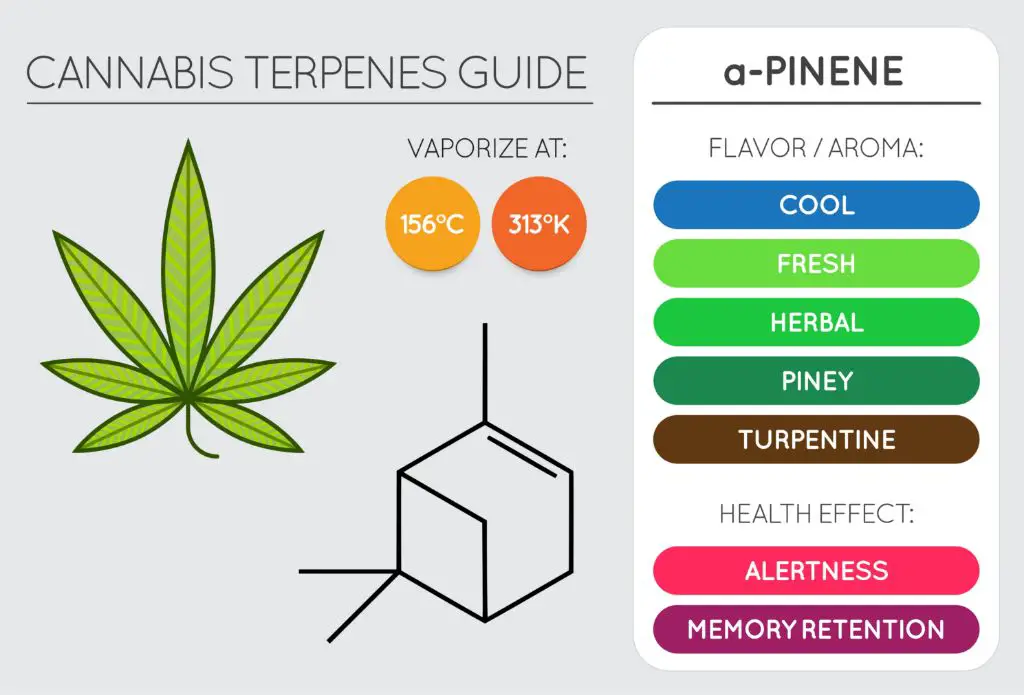Why Does Cypress Smell So Good?
Cypress trees, part of the Cupressaceae family, are known for their intriguing shapes, graceful foliage, and pleasant, woody aromas. Several cypress species, especially plants like Cupressus macrocarpa (Monterey cypress), have an aromatic, slightly sweet, evergreen scent that many people find appealing. When crushed or cut, the needles and wood of cypress trees release this refreshing aroma that can evoke feelings of calm and harmony.
The unique scent of cypress stems from the complex blend of chemicals and compounds inside the tree’s foliage, bark, and wood. As one of the tree’s identifying characteristics, the fragrant oils help deter pests, prevent decay, and attract pollinators. Additionally, for some cultures, the evocative cypress scent carries spiritual meaning and represents strength, longevity, and vitality. With proper care, cypress trees can live for centuries while bringing beauty and an iconic aroma to any landscape.
Chemicals Responsible for Scent
The refreshing scent of cypress trees is primarily due to natural organic compounds called terpenes. The most abundant terpenes found in cypress essential oil include:
- Alpha-pinene – This chemical gives cypress its pine-like aroma. Alpha-pinene is also found in pine trees and is known for its anti-inflammatory and bronchodilating properties (Source).
- Limonene – Adds a citrusy, orange-like scent to cypress oil. Limonene is common in the rinds of citrus fruits.
- Delta-3-carene – Contributes a sweet, earthy aroma reminiscent of pine resin.

Other terpenes present in smaller amounts add nuanced layers to cypress’s overall fragrance profile. The complex blend of terpenes is responsible for the invigorating, forest-like scent that makes cypress so pleasant to smell.
Evolutionary Purpose of Scent
The primary evolutionary purpose of scent in plants like cypress is to attract pollinators while deterring pests. Plants have evolved to produce unique chemical compounds that evaporate easily and spread through the air. These aromatic compounds serve as signals to attract specific pollinators like insects and birds that will aid in plant reproduction (https://www.frontiersin.org/articles/10.3389/fevo.2020.00030). The scents allow pollinators to locate flowers even at a distance. Plants can evolve scent profiles preferred by local pollinators through natural selection.
At the same time, many plant scents have natural pest-repelling properties. Strong scents can mask the plant to herbivores or contain chemicals that deter feeding. This dual evolutionary pressure of attracting pollinators while deterring threats has shaped the specialized scent profiles of cypress and other plants (https://besjournals.onlinelibrary.wiley.com/doi/10.1111/j.1365-2435.2009.01627.x). The pleasant, unique scent of cypress likely represents an optimal evolutionary strategy to aid reproduction and defense.
Unique Scent of Cypress
The scent of cypress trees is often described as fresh, green, and invigorating. Compared to other conifers like pine, fir, and cedar, cypress has a cleaner, brighter, more refreshing aroma. According to Sedona Aromatics, cypress oil has a “delicate, sweet, balsamic, and green aroma that is fresh and evergreen, yet sweet and fruity with tea-like back notes.” In contrast, pine and fir trees have a sharper, more resinous scent, while cedar has a woodier, earthier profile. On Reddit discussions comparing cypress, cedar, and pine scents, users describe cypress as sweeter, brighter, and more complex than other conifers [1]. The unique cypress aroma comes from its high content of alpha-pinene, a fragrant terpene compound.
When Scent is Strongest
The refreshing, woody scent of cypress trees tends to be most noticeable and intense during hot summer weather. When temperatures climb, cypress trees produce more of their aromatic oils, resulting in a stronger released fragrance (https://parfumery.co.uk/blogs/news/what-does-cypress-smell-like). The heat causes the volatile oils to vaporize more readily from the leaves, allowing the scent to travel further.
Additionally, injury to a cypress tree often triggers a stronger release of scent as well. When a tree sustains damage from weather, animals, insects, or human activities, it will frequently pump out more aromatic compounds around the wound. This is thought to be a natural defense mechanism, as the potent smell can repel pests and prevent further attacks on the injured areas (https://www.quora.com/Do-cypress-trees-have-a-fragrance). So if walking through a cypress forest after a storm, expect the sweet, pine-like aroma to be especially pronounced.
Regional Differences
The scent profile of cypress trees can vary significantly depending on the region where they are growing. According to research, cypress trees grown in the Mediterranean region tend to have the strongest, most pronounced scent (Source 1). This is likely due to the hot, dry climate and poor, rocky soil conditions. The stressful growing environment causes the cypress trees to produce more aromatic compounds as a defense mechanism.
In contrast, cypress trees grown in more temperate climates like the southeastern United States tend to have a milder, more subtle scent. The cooler temperatures and moisture allow them to thrive without needing to generate as much protective aroma. However, some variety such as the Leyland cypress retains a relatively strong scent even in US climates (Source 2).
Overall, the maximally complex cypress scent containing hints of lemon, pine, cedar, and moss is most likely to occur in trees grown in the challenging conditions of the Mediterranean hills and coastline.
Scent and Human Wellbeing
The pleasant and unique scent of cypress has long been incorporated into human wellbeing practices. The practice of aromatherapy makes use of essential oils from plants like cypress that have beneficial effects on mood, stress levels, and health when their aroma is inhaled.
Cypress essential oil in particular is valued in aromatherapy for its relaxing and calming properties. The crisp, woodsy scent of cypress can help relieve anxiety and stress when diffused. It’s also thought to promote restful sleep.
Beyond aromatherapy, just having fresh cypress trees and foliage around a living space or garden provides an uplifting ambiance. The refreshing smell can improve mood, reduce irritability, and create a soothing environment. Cypress scent serves as a natural relaxation and meditation aid.
Incorporating Scent
There are several ways to bring the refreshing scent of cypress into your home or yard. One classic method is through potpourri. Dried cypress foliage, pinecones, and essential oil can be combined in a potpourri mixture to provide a pleasant aroma. Simply place the potpourri in bowls around your home and enjoy the evocative cypress scent. You can also incorporate cypress essential oil into a diffuser to scent the air. Add 5-10 drops of cypress oil to your diffuser along with other complementary scents like bergamot or pine. The diffused oil will provide calming aromatherapy benefits. For your yard, consider planting cypress trees or hedges. The trees release their sweet, clean scent constantly, allowing you to experience the relaxing cypress aroma just by spending time outdoors. Place cypress trees near walkways or seating areas so you can benefit from their soothing fragrance.
Threats to Cypress Scent
While cypress trees are valued for their pleasant natural aroma, there are some threats that can diminish or alter their scent.
One major threat is disease, especially an infection called “pecky cypress” caused by the fungus Lauriliella taxodii. This fungus creates pockets in the heartwood that give it a “pecky” appearance. It does not directly affect the scent, but over time as the disease progresses, it can lead to rot, damaging the aromatic compounds in the wood (Wikipedia).
Climate change is another emerging threat. As temperatures and precipitation patterns shift, the growth and production of the aromatic compounds in cypress trees may be impacted. More drought conditions could potentially stress trees and reduce scent production.
Finally, invasive pests like the cypress bark beetle can damage and kill cypress trees, eliminating their scent entirely. Preventing infestations through monitoring and integrated pest management is key to preserving forests of aromatic cypress trees (NWF).
Conclusion
The refreshing, woody scent of cypress has captivated people for centuries. As we’ve explored, the unique aroma comes from chemical compounds like α-pinene and limonene produced within the leaves and wood of the tree. This scent likely evolved to help repel insects, prevent disease, and attract pollinators. Of all the conifers, cypress stands out for its complex, nuanced fragrance reminiscent of forests and the great outdoors.
Today, the evocative smell of cypress continues to provide benefits. Studies show exposure can reduce stress, boost mood, and enhance concentration. The essential oil is also popular in aromatherapy and natural medicine. However, climate change and urbanization threaten cypress trees and their unforgettable scent. As responsible stewards, we must protect these invaluable trees and our right to enjoy their sublime perfume.
In summary, the cypress’ magnificent aroma is an irreplaceable natural wonder we must treasure and preserve for future generations.




